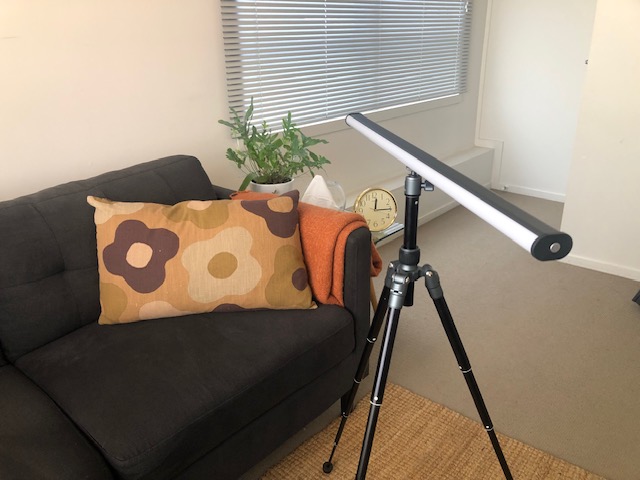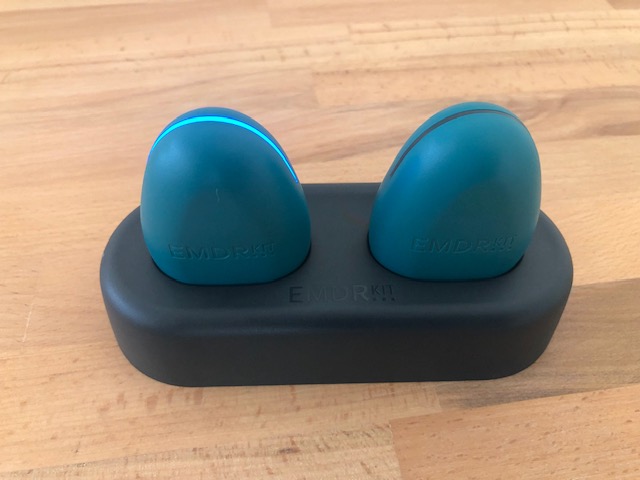1. What is EMDR Therapy?
Eye Movement Desensitisation and Reprocessing (EMDR Therapy) is an evidence-based approach that helps people process and heal from traumatic or distressing experiences.
2. How does EMDR Therapy work?
EMDR Therapy uses bilateral stimulation (such as eye movements, sounds, or taps) while you recall distressing memories. This helps your brain reprocess the memory, reducing its emotional intensity and promoting adaptive coping.
3. What issues can EMDR Therapy help with?
EMDR Therapy is proven effective for post-traumatic stress disorder (PTSD) and can also help with anxiety, depression, phobias, grief, performance issues, and other difficulties linked to stressful life events.
4. Is EMDR Therapy safe?
Yes. EMDR Therapy is a safe, non-invasive, and well-researched treatment. Your therapist will guide you through the process carefully, ensuring you remain grounded and supported.
5. How is EMDR Therapy different from other therapies?
Unlike traditional talk therapy, EMDR Therapy does not require you to give detailed accounts of your trauma. It focuses on reprocessing how memories are stored in the brain, which can lead to faster and lasting relief.
6. Does EMDR Therapy work online?
Yes. EMDR Therapy can be delivered effectively online using secure video platforms and virtual tools for bilateral stimulation. A private space, laptop or desktop, and stable internet connection are recommended.
7. What happens in the first EMDR Therapy session?
Your first EMDR Therapy session focuses on understanding your history, current concerns, and therapy goals. The therapist explains EMDR Therapy, answers your questions, and develops a treatment plan.
8. How many EMDR Therapy sessions will I need?
It varies. Some people experience improvement in just a few sessions, while others may need longer-term EMDR Therapy, especially if dealing with complex trauma.
9. What are the 8 phases of EMDR Therapy?
The eight phases are: 1) History-taking, 2) Preparation, 3) Assessment, 4) Desensitisation, 5) Installation, 6) Body Scan, 7) Closure, 8) Re-evaluation.
10. Do I have to talk in detail about my trauma during EMDR Therapy?
No. Unlike some therapies, EMDR Therapy does not require you to describe your trauma in depth. You only need to focus on what feels important to you.
11. What will I feel during EMDR Therapy?
Some people experience strong emotions, physical sensations, or vivid memories. This is a natural part of the EMDR Therapy process. Your therapist helps you stay safe and grounded throughout.
12. Will EMDR Therapy erase my memories?
No. EMDR Therapy does not remove memories. Instead, it helps you remember them without the same emotional intensity or distress.
13. Who provides EMDR Therapy at The EMDR Clinic?
Our therapists are fully trained clinical psychologists and registered health professionals, accredited in EMDR Therapy through recognised training organisations.
14. Where is The EMDR Clinic located?
We are based in Auckland, New Zealand and offer both in-person and secure online EMDR Therapy.
15. Do I need a referral to begin EMDR Therapy?
No referral is needed. You can self-refer and book EMDR Therapy directly with us.
16. Is EMDR Therapy covered by ACC or insurance?
Yes, EMDR Therapy may be covered under ACC for sensitive claims or by some private insurers. Please check with your provider for details.
17. How long is an EMDR Therapy session?
Sessions typically last 50–60 minutes. In some cases, longer EMDR Therapy sessions may be arranged if appropriate.
18. How much does EMDR Therapy cost?
Our fees are in line with standard clinical psychology rates in New Zealand. Please see our Fees page or contact us for current pricing.
19. Is EMDR Therapy suitable for children?
Yes. EMDR Therapy has been adapted for children and young people, and can be very effective in helping them process distressing experiences.
20. Can EMDR Therapy help with recent stressful events?
Yes. EMDR Therapy can be used shortly after an event to reduce distress and prevent longer-term difficulties.
21. What if I can’t remember my trauma clearly?
That’s okay. EMDR Therapy works with memories, body sensations, and emotions. Even vague or unclear recollections can be processed effectively.
22. Do I need to prepare before starting EMDR Therapy?
No special preparation is required. Your therapist will help you build coping resources and strategies before moving into trauma processing with EMDR Therapy.
23. Can EMDR Therapy be combined with other therapies?
Yes. EMDR Therapy often integrates well with other approaches such as CBT, ACT, or talk therapy.
24. What if I feel worse after an EMDR Therapy session?
Sometimes people feel temporarily unsettled as memories shift. This usually passes quickly, and your therapist will give you grounding strategies to manage it.
25. Is EMDR Therapy scientifically proven?
Yes. EMDR Therapy is recommended by the World Health Organization, the American Psychiatric Association, and the New Zealand Ministry of Health as an effective treatment for trauma.
26. How long do EMDR Therapy results last?
Research shows that EMDR Therapy results are long-lasting. Once memories are reprocessed, the benefits are typically sustained.
27. What if EMDR Therapy doesn’t work for me?
While EMDR Therapy helps most people, no therapy works for everyone. If EMDR Therapy isn’t effective, your therapist will discuss alternative approaches.
28. Can EMDR Therapy improve everyday stress and performance?
Yes. EMDR Therapy is not only for trauma—it can also help with confidence, phobias, public speaking, sports performance, and reducing general stress.
29. Is EMDR Therapy culturally appropriate?
At The EMDR Clinic, we are committed to culturally safe practice. EMDR Therapy can be adapted to respect and include cultural values, identity, and worldview.
30. How do I book an EMDR Therapy appointment?
You can book EMDR Therapy directly through our website. Go the Book Now button on the web page. You can book an initial consultation at a time that works for you.



